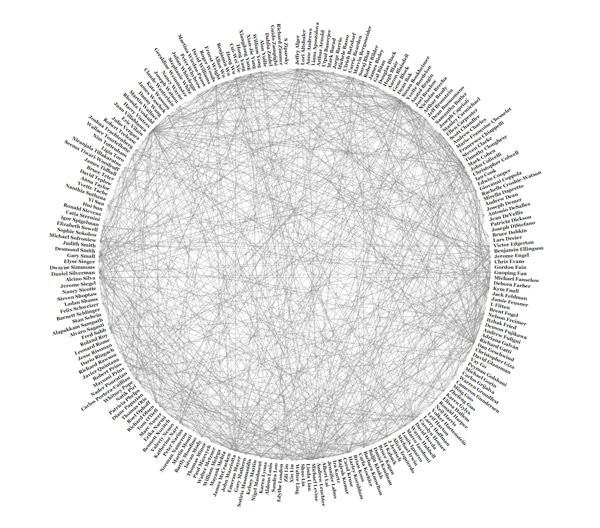EMPOWERING COLLABORATIVE AND
DIVERSE NEUROSCIENCE RESEARCH,
EDUCATION AND OUTREACH AT UCLA.
Joint Seminars In Neuroscience

UP NEXT:
Coming Soon
Upcoming Events/Seminars
- 12:00pm
Neuromodulation Seminar Series – Hanbing Lu, Ph.D.
- 12:00pm
Ecological Medicine & Psychedelic Studies Initiative (PSI) Workshop – “Psychedelic Therapies in Ecological Balance: Perspectives from Black &Indigenous Community Leaders”
- 9:00am
Neurology Grand Rounds – Min Tian, Ph.D.
The UCLA Brain Research Institute (BRI) is a catalyst for education, outreach, and research collaborations among current and future scientists, engineers and clinicians who seek to understand the healthy and diseased brain.
UCLA is rated the #1 Public University in the country.

Image of the Month
Image: Cross section of an adult mouse sciatic nerve. Red is Limk1 labeled with Cy3 and green is neurofilament (axons) labeled with Alexa
Fluor 488.
By: Soizic Riche, Samantha Butler Lab
#1 Educational Program
UCLA is ranked the #1 public education program in the country by US News. Programs are diverse, affordable, and mission driven.
Life Changing Research
The BRI provides multiple mechanisms to invigorate research programs and support collaborations bringing together investigators from complementary fields. These mechanisms include
Outreach That Impacts Our Communities
The BRI aims to extend scientific knowledge into the community and inspire elementary and secondary school students to explore a career in neuroscience






